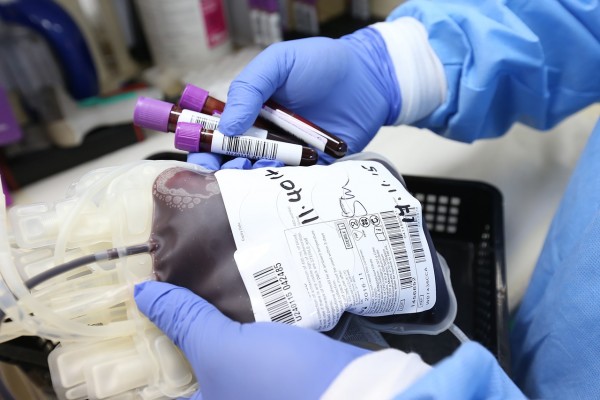Engineers Devise New Diagnostic that Could Reduce Probabilities of Death from Blood Loss
Following the research, engineers have recently devised a fast, affordable, and portable diagnostic that can aid the delivery of urgent treatment to people at risk of dying from rapid loss of blood. The prestigious ACS Sensors journal published the said findings.
In what reports about this new development described as a "world-first outcome that could save" over two million lives worldwide every year, scientists at Australia-based Monash University developed a diagnostic through the use of a glass slide, Teflon film, and a piece of paper that can examine for fibrinogen concentration levels in blood in less than four minutes.
Specifically, Fibrinogen is a protein found in the blood that's needed for clotting. When an individual suffers from a traumatic injury, like a severe car accident for a major operation and complications from childbirth, fibrinogen is needed in their blood to avoid the occurrence of major hemorrhaging and death from blood loss.
ALSO READ: Blood Test That Can Detect Alzheimer's Disease Now Available for Clinical Use

Even following dozens of transfusions, patients continue to bleed. In circumstances like this, an expert said, ‘What they need is a fibrinogen injection.’
The New Diagnostics
This new development by scientists at Monash University's Department of Chemical Engineering and Bioresource Processing Institute of Australia or BioPRIA, in alliance with Haemokinesis, eliminates the need for centralized hospital equipment to identify, monitor, and treat levels of fibrinogen, something that hasn't been achieved until now.
In addition, this diagnostic can be upscaled into what reports specify as a "point-of-care" mechanism and place in ambulances, other respondent vehicles in regional and remote areas, and GP clinics.
The developers say what they are proud of about this development is that it only takes four minutes to complete.
According to BioPRIA director Professor Garnier, this new diagnostic is designed to enable emergency doctors and paramedics to rapidly and precisely diagnose low fibrinogen levels in patients, providing them with faster access to life-saving therapy to prevent critical bleeding.
DON'T MISS THIS: Researchers Reveal How a Keto Diet Could Help Reduce Alzheimer-Causing Fungi in the Gut
The Need to Inject Fibrinogen
When an individual is bleeding profoundly and has been given numerous blood transfusions, their fibrinogen levels drop.
Even following dozens of transfusions, patients continue to bleed. In circumstances like this, Professor Garnier explained, "What they need is a fibrinogen injection." However, he continued, if a patient is given too much of it, "They can also die."
There are over 60 tests that can gauge fibrinogen concentration. Nonetheless, these tests need an importable mechanism on hospital tabletops to use.
Meaning, Garnier elaborated that crucial time needs to be spent transporting profoundly bleeding patients to a hospital prior to undergoing a 30-minute diagnosis.
Significant Diagnostic Implications
Research co-author and Department of Chemical Engineering Ph.D. candidate Marek Bialkower said that such diagnostic implications are substantial.
The diagnostic can function with various blood conditions. More so, hypofibrinogenemia, inadequate fibrinogen to allow effective clotting in crucial bleeding is common. The said findings showed, "Over 20 percent of the major trauma patients have hyperfibrinogenemia."
Research Fellow in the Monash Department of Chemical Engineering Dr. Clare Manderson said the early diagnosis of hypofibrinogenemia could stop bleeding in patients and save their lives.
She added, the world's first handheld fibrinogen diagnostic's development "is a game-changer for the millions of people who die every year from critical blood loss.
IN CASE YOU MISSED IT: 6 Reasons Why You're Gaining Weight Unintentionally
Check out more news and information on Blood Loss on MD News Daily.
Nov 02, 2020 11:00 AM EST





